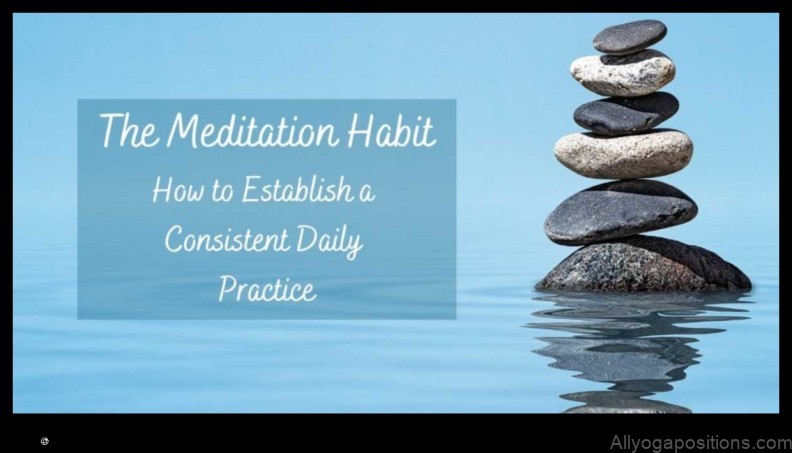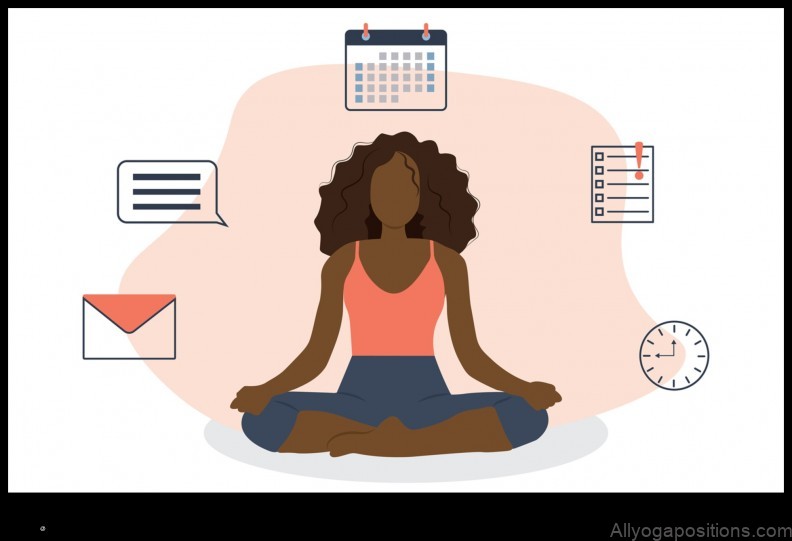
How to Develop a Daily Meditation Practice
Daily meditation has been shown to have a number of benefits for both physical and mental health. It can help to reduce stress, improve sleep, increase focus, and boost creativity. If you’re new to meditation or you’re looking to improve your current practice, here are a few tips to help you get started:

Find the Right Time and Place to Meditate
The best time to meditate is when you’re feeling relaxed and alert. For some people, this might be early in the morning, while for others it might be in the evening. The most important thing is to find a time that works for you and that you’re able to stick to on a regular basis.
As for where to meditate, you can do it anywhere that you feel comfortable and relaxed. This could be your bedroom, your living room, or even your local park. If you’re new to meditation, you might want to start by meditating in a quiet place where you won’t be disturbed.
Tips for Beginners
If you’re new to meditation, here are a few tips to help you get started:
- Start by meditating for just a few minutes each day. As you get more comfortable with meditation, you can gradually increase the amount of time you spend meditating.
- Find a comfortable position to sit in. You can sit on a chair, on the floor, or even in bed. Just make sure that you’re comfortable and that your spine is straight.
- Close your eyes and focus on your breath. As you breathe in, say to yourself, “I am breathing in.” As you breathe out, say to yourself, “I am breathing out.”
- If your mind wanders, don’t worry. Just gently bring your attention back to your breath.

Common Mistakes to Avoid
There are a few common mistakes that beginners often make when they’re starting out with meditation. Here are a few things to avoid:
- Don’t expect to be perfect. Everyone experiences distractions when they’re meditating. The important thing is to just keep practicing.
- Don’t try to force yourself to meditate. If you’re not feeling it, don’t force it. Just come back to it another time.
- Don’t compare yourself to others. Everyone’s meditation practice is different. Just focus on your own practice and don’t worry about what others are doing.
Overcoming Obstacles to Meditation
There are a number of obstacles that can prevent you from meditating regularly. Here are a few tips for overcoming these obstacles:
- Set realistic goals. Don’t try to meditate for hours each day if you’re just starting out. Start by meditating for just a few minutes each day and gradually increase the amount of time you spend meditating as you get more comfortable.
- Find a support system. Find a friend, family member, or therapist who can support you on your meditation journey.
- Make meditation a part of your daily routine. Set aside a specific time each day to meditate and stick to it as much as possible.
Making Meditation a Part of Your Daily Routine
Meditation can be a great way to start your day or to wind down at the end of the day. Here are a few tips for making meditation a part of your daily routine:
- Meditate first thing in the morning. Meditation can help to set you up for a positive and productive day.
- Meditate before bed. Meditation can help to relax you and prepare you for sleep.
- Meditate during your lunch break. Meditation can help you to de-stress and re-energize after a long day at work.
Benefits of Daily Meditation for Specific Groups
Meditation has been shown to have a number of benefits for specific groups of people, including:
- Children and adolescents. Meditation can help children and adolescents to
Topic Features Daily Meditation Habits – Find a quiet place to meditate
– Set a regular time to meditate
– Practice for at least 10 minutes each day
– Be patient and persistentMeditation Practice – Mindfulness meditation
– Transcendental meditation
– Vipassana meditation
– Zen meditationMindfulness Meditation – Focus on your breath
– Notice your thoughts and feelings
– Let go of judgments and attachmentsMeditation Benefits – Reduce stress
– Improve focus
– Reduce anxiety
– Improve sleepMeditation for Beginners – Use guided meditations
– Find a meditation teacher or group
– Read books or articles about meditationII. Benefits of Daily Meditation
Meditation has been shown to have a wide range of benefits for both physical and mental health. Some of the benefits of daily meditation include:
- Reduced stress and anxiety
- Improved mood and well-being
- Increased focus and concentration
- Improved sleep quality
- Reduced pain
- Enhanced immune function
- Reduced risk of heart disease and stroke
- Improved cognitive function
For more information on the benefits of meditation, please see the section on research on the benefits of meditation.
III. How to Meditate Daily
Meditation is a practice that can be learned and enjoyed by people of all ages and backgrounds. It is a simple yet powerful way to improve your physical and mental health, and to connect with your inner self.
If you are new to meditation, or if you are looking to improve your existing practice, here are some tips on how to meditate daily:
- Find a quiet place where you will not be disturbed.
- Sit in a comfortable position with your back straight.
- Close your eyes and focus on your breath.
- Breathe in and out slowly and deeply.
- As you breathe, let go of any thoughts or worries that come into your mind.
- Stay focused on your breath for as long as you can.
- When you are finished meditating, open your eyes and slowly stand up.
Meditation is a practice that takes time and dedication to master. However, if you are patient and consistent, you will soon reap the benefits of a daily meditation practice.
IV. Tips for Beginners
Here are some tips for beginners to help you get started with meditation:
- Find a quiet place to meditate where you won’t be disturbed.
- Sit in a comfortable position with your back straight and your eyes closed.
- Focus on your breath as you inhale and exhale slowly and deeply.
- If your mind wanders, gently bring your attention back to your breath.
- Meditate for as long as you feel comfortable, even if it’s just for a few minutes.
It’s important to be patient with yourself as you learn to meditate. Everyone is different, and it may take some time to find a meditation practice that works for you. The most important thing is to keep practicing and to be kind to yourself.
V. Common Mistakes to Avoid
When you’re first starting out with meditation, it’s easy to make some common mistakes. Here are a few to avoid:
- Trying to force yourself to meditate. Meditation is not about forcing anything. It’s about letting go and allowing yourself to relax. If you try to force yourself to meditate, you’ll only make yourself more stressed and tense.
- Trying to meditate for too long. When you’re first starting out, it’s best to meditate for short periods of time, such as 5 or 10 minutes. As you get more comfortable with meditation, you can gradually increase the length of your sessions.
- Worrying about how you’re doing. When you’re meditating, it’s important to let go of all thoughts and judgments. This includes worrying about how you’re doing. If you find yourself worrying about how you’re doing, simply let go of those thoughts and return to your breath.
- Trying to control your thoughts. When you’re meditating, it’s natural for your mind to wander. This is not a problem. In fact, it’s an opportunity to practice letting go of control. Simply observe your thoughts without judgment, and let them go as they arise.
VI. Overcoming Obstacles to Meditation
There are many obstacles that can prevent you from developing a daily meditation practice. Some of the most common obstacles include:
- Lack of time
- Difficulty finding a quiet place to meditate
- Discomfort or pain during meditation
- Negative thoughts or emotions
- Discouragement
If you are struggling to overcome any of these obstacles, there are a number of things you can do. Here are a few tips:
- Set aside a specific time each day for meditation, even if it is just for a few minutes.
- Find a quiet place where you will not be disturbed.
- Make sure you are comfortable during meditation. You may want to sit on a cushion or pillow, or lie down.
- If you experience discomfort or pain during meditation, try to relax and focus on your breath.
- If you have negative thoughts or emotions during meditation, let them come and go without judgment.
- Don’t be discouraged if you don’t see results immediately. Meditation is a practice, and it takes time to develop the skills and benefits.
If you are still struggling to overcome obstacles to meditation, you may want to consider working with a meditation teacher or therapist.
VII. Making Meditation a Part of Your Daily Routine
Once you have established a basic meditation practice, the next step is to make it a part of your daily routine. This may seem daunting at first, but it is actually quite simple. Here are a few tips:
- Set a specific time each day to meditate. This will help you to create a habit and make it more likely that you will stick with it.
- Find a quiet place to meditate where you will not be disturbed.
- Make sure you are comfortable. You can sit in a chair, lie down, or even meditate while you are walking.
- Start with a short meditation session and gradually increase the length of time as you become more comfortable.
- Be patient with yourself. It takes time to develop a meditation practice. Don’t get discouraged if you miss a day or two. Just keep coming back to it and you will eventually see results.
Making meditation a part of your daily routine can have a profound impact on your life. It can help you to reduce stress, improve your mood, and increase your overall well-being. So why not give it a try? You might be surprised at how much you enjoy it.
VIII. Benefits of Daily Meditation for Specific Groups
Meditation can have a number of benefits for people of all ages, backgrounds, and lifestyles. However, some groups may experience more benefits from meditation than others.
For example, research has shown that meditation can be particularly helpful for people who are:
- Stressed or anxious
- Depressed
- Chronically ill
- In pain
- Struggling with addiction
- Dealing with grief or loss
If you belong to one of these groups, you may find that meditation can help you to manage your symptoms and improve your overall well-being.
However, it is important to note that meditation is not a cure-all. It is not a substitute for medical or psychological treatment. If you are struggling with a mental health condition, it is important to seek professional help.
Meditation can be a helpful addition to your treatment plan, but it is not a replacement for it.
IX. Research on the Benefits of Meditation
There is a growing body of research that supports the benefits of meditation. Studies have shown that meditation can help to improve a variety of mental and physical health conditions, including:
- Stress
- Anxiety
- Depression
- Insomnia
- Pain
- Blood pressure
- Heart rate
- Immune function
Meditation has also been shown to improve cognitive function, such as attention, memory, and decision-making.
For a more comprehensive review of the research on the benefits of meditation, please see the following resources:
- The Effects of Meditation on Health and Well-Being: A Systematic Review of Randomized Controlled Trials
- The Benefits of Mindfulness Meditation: A Meta-Analysis
- Meditation for Health
FAQ
Question 1: What are the benefits of daily meditation?
Answer 1: Meditation has been shown to have a number of benefits for both physical and mental health, including reducing stress, improving focus, and boosting mood.Question 2: How do I get started with daily meditation?
Answer 2: The best way to get started with daily meditation is to find a time and place that is quiet and comfortable for you. Once you have found a suitable place, you can begin by sitting in a comfortable position and closing your eyes.Question 3: What are some common obstacles to meditation?
Answer 3: Some common obstacles to meditation include distractions, boredom, and frustration. If you experience any of these obstacles, it is important to be patient and persistent. With regular practice, you will eventually be able to overcome these obstacles and experience the benefits of meditation.Table of Contents
Maybe You Like Them Too
- Yoga for Swimmers Improve Flexibility, Lung Capacity, and Overall Performance
- Yoga for Emotional Resilience 5 Poses to Cultivate Equanimity
- Bhujangasana The Cobra Pose That Will Strengthen Your Back and Core
- Yoga for Emotional Wellness 5 Practices to Find Joy
- Yoga for Emotional Balance Find Your Zest for Life
